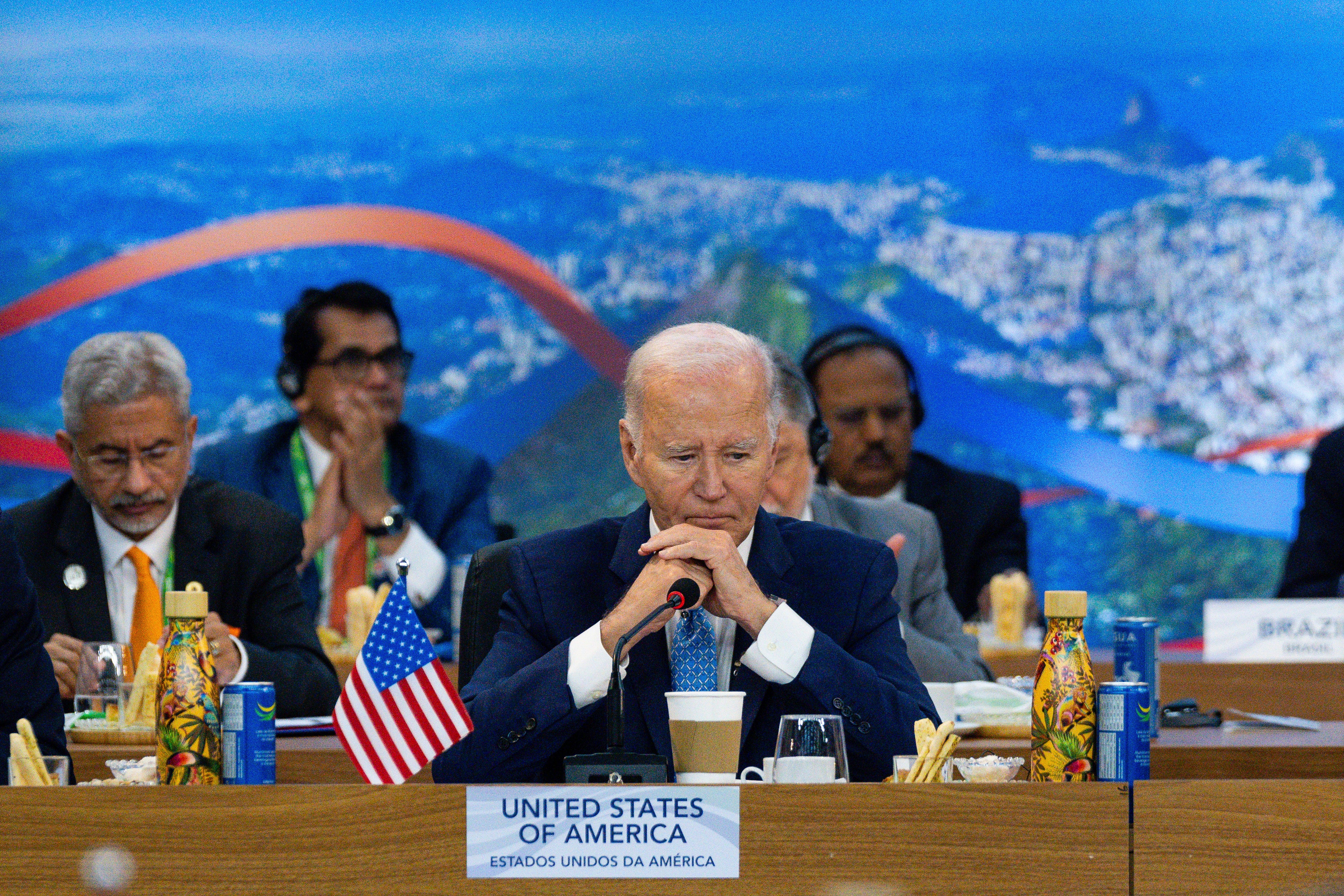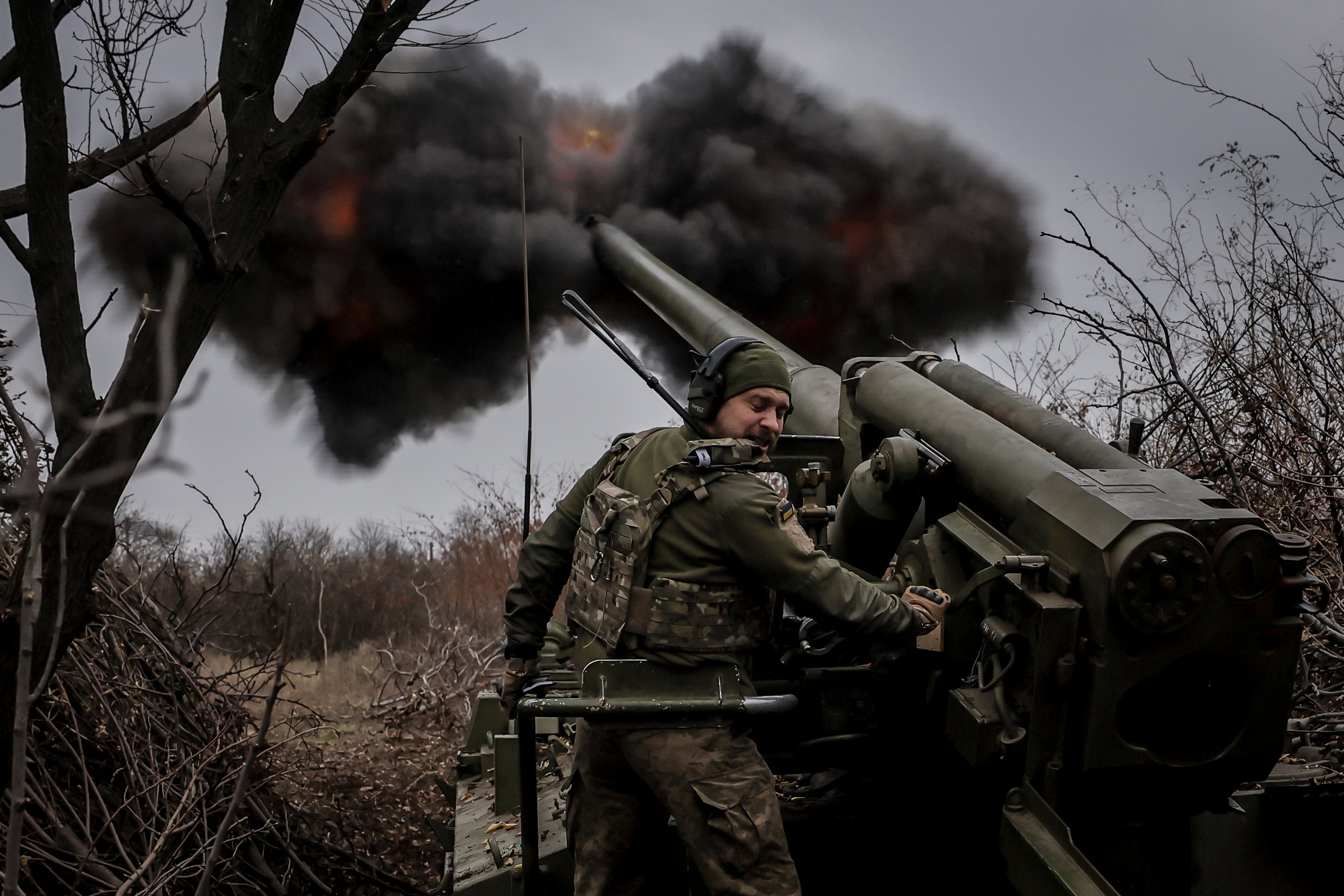Biden approves sending anti-personnel mines to Ukraine in latest policy shift during final days in office
Outgoing president scrambles to help Volodymyr Zelensky before leaving the White House as Russia warns it will interpret latest western moves as direct escalation of conflict
President Joe Biden has approved the supply of anti-personnel landmines to Ukraine to use in its fight against Russia, according to reports – marking his latest policy shift as he scrambles to help Ukrainian President Volodymyr Zelensky before Donald Trump returns to the White House in January.
Two US officials told The Washington Post that Kyiv has committed to deploying the explosive devices exclusively on its own territory and not in areas populated by civilians
Ukraine hopes the development will enable it to slow the advance of Russian ground troops in the east, especially when used alongside other munitions gifted by its western allies, an official told Reuters.
The US has provided Ukraine with anti-tank mines throughout the war with Russia, which began in late February 2022, but the addition of anti-personnel mines provides a different defensive threat, although the battery-powered mines are “non-persistent”, meaning they become inert after a preset period.
The development comes days after Biden also shifted his stance by permitting America’s war-torn European ally to use its long-range ATACMS missiles to strike deeper into Russian territory.

The decision – which coincided with the conflict’s 1,000th day – inspired an outcry from members of Trump’s inner circle, including his son Donald Trump Jr and Georgia Representative Marjorie Taylor Greene, who accused Biden of attempting to start a Third World War before the president-elect takes office.
On Wednesday morning, the US shuttered its embassy in Kyiv saying it had received intelligence about a “potential significant air attack on November 20”.
“Out of an abundance of caution, the embassy will be closed, and embassy employees are being instructed to shelter in place,” the US Department of State Consular Affairs said in a statement.
“The US embassy recommends US citizens be prepared to immediately shelter in the event an air alert is announced.”
Moscow claimed on Tuesday that attacks on Russian targets had already begun and said the move was a clear signal that the NATO-led west was seeking to escalate the conflict, just as experts had warned.

In response, Russian President Vladimir Putin lowered the threshold for a nuclear strike in response to a broader range of conventional attacks.
Under Putin’s revised nuclear doctrine, a conventional attack on Russia by any nation supported by a nuclear power will be considered a joint attack on his country.
The doctrine, which lays the conditions under which Russia’s leadership might consider a nuclear strike, also states that an attack using conventional missiles, drones or other kinds of aircraft could justify the response.
Additional reporting by agencies.
Join our commenting forum
Join thought-provoking conversations, follow other Independent readers and see their replies
Comments
Bookmark popover
Removed from bookmarks